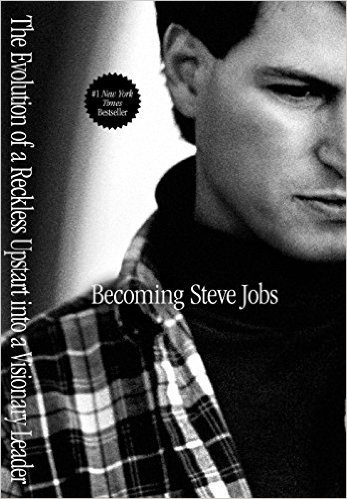
Small Fry: A Memoir
Book Description
A child’s laughter echoes through the halls of a Silicon Valley titan, but beneath the surface, a poignant story of longing and identity unfolds. Lisa Brennan-Jobs navigates the turbulent waters of her complex relationship with her father, the enigmatic Steve Jobs, as she grapples with the search for love and belonging. Desperate for connection, she reveals the heartbreak of feeling like an outsider in a world defined by genius and ambition. With each poignant memory, the stakes grow higher, testing the bonds of family against the backdrop of modern innovation. What happens when the pursuit of greatness leaves us feeling small?
Quick Book Summary
"Small Fry: A Memoir" by Lisa Brennan-Jobs offers an intimate exploration of growing up at the periphery of privilege and genius. Lisa, the daughter of Apple co-founder Steve Jobs, recounts her complicated relationship with her father—marked by longing, distance, and the struggle for acceptance. Set in Silicon Valley during the tech industry’s booming years, the memoir reveals the dichotomy between her mother’s unconventional upbringing and her father’s unpredictable, sometimes harsh behavior. Through meticulous storytelling, Lisa reflects on her feelings of being an outsider, her determination to forge her own identity, and the high emotional cost of seeking love from a man who embodied both brilliance and contradiction. With unflinching honesty, Lisa captures the struggle of finding self-worth amid the pressures and peculiarities of a family shaped by ambition and innovation.
Summary of Key Ideas
Table of Contents
Complex Parent-Child Dynamics
Raised primarily by her single mother, Chrisann Brennan, Lisa Brennan-Jobs experienced a childhood marked by financial struggles and feelings of inadequacy. While growing up on the margins of Silicon Valley’s burgeoning wealth, Lisa lived a life far removed from her father's growing empire. Her early years were defined by the uncertainties of her mother’s artistic lifestyle, making Lisa acutely aware of the material and emotional disparities between her family and those around them. Yet, she always longed to be acknowledged and accepted by Steve Jobs, whose presence was sporadic and unpredictable.
The Search for Identity and Belonging
Steve Jobs’ role as a father was both magnetic and bewildering. Sometimes charismatic and fun, at other times distant and dismissive, his behavior left Lisa in a continual state of uncertainty. She craved his approval, enduring moments of sharp rejection and fleeting affection. Jobs’ denial of paternity in her early life and the complexity of later interactions revealed the deeply rooted challenges in their relationship. Lisa’s narrative uncovers her struggle to reconcile her longing for connection with the painful reality of her father’s inconsistent love.
The Impact of Genius and Ambition on Family
As Lisa began to spend more time in her father’s world, she was introduced to the privileges and peculiarities that came with his success. The stark contrasts between her two homes—her mother’s bohemian surroundings and her father’s luxurious, controlled environments—highlighted the emotional disconnect that often accompanied material abundance. Lisa’s observations extend beyond her family to encompass the broader impacts of Silicon Valley ambition, showing how the pursuit of greatness can shape and sometimes distort familial bonds.
Contrasts Between Privilege and Emotional Need
Throughout her adolescence, Lisa explored questions of identity and belonging. She navigated elite schools and social circles as an outsider, acutely aware of her ambiguous place in both her families and her father’s notoriously demanding standards. Lisa’s desire to earn her father’s love was a powerful motivator, but also a source of ongoing heartbreak. She used writing as a tool for self-invention, striving to create a sense of worth that was independent of her father’s validation.
Forgiveness and Coming of Age
Ultimately, "Small Fry" is a story of resilience and forgiveness. Lisa Brennan-Jobs reflects on her journey with compassion and clear-eyed honesty, recognizing both the gifts and wounds inherited from her parents. The memoir illustrates how she comes to terms with the complicated legacy of growing up with a father like Steve Jobs—embracing her own identity while letting go of a painful need for approval. In doing so, Lisa crafts a narrative that resonates with anyone who has ever felt small in the shadow of greatness.
Download This Summary
Get a free PDF of this summary instantly — no email required.





